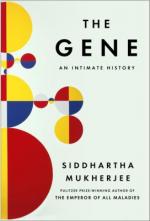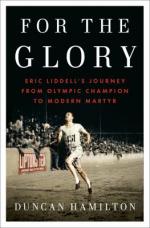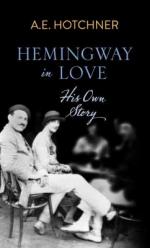- Books
- May We Suggest
- war
- Eric Liddell
- Robert Kennedy
- Jimmy Hoffa
- Olympics
- Ernest Hemingway
- Gregor Mendel
- genetics
- soldiers
- labor unions
- Teamsters
- Biography
- Government/Law
- History
September 4, 2016 | madame librarian
There is something about a non-fiction book that challenges people to change, to reflect upon their lives, to explore new worlds...
'Grunt' tackles the science behind some of a soldier's most challenging adversaries-- panic, exhaustion, heat, noise-- and introduces us to the scientists who seek to conquer them.
The story of the gene begins in earnest in an obscure Augustinian abbey in Moravia in 1856 where Gregor Mendel, a monk working with pea plants, stumbles on the idea of a "unit of heredity." It intersects with Darwin's theory of evolution, and collides with the horrors of Nazi eugenics in the 1940s. The gene transforms postwar biology. It invades discourses concerning race and identity and provides startling answers to some of the most potent questions coursing through our political and cultural realms. It reorganizes our understanding of sexuality, gender identity, sexual orientation, temperament, choice, and free will, thus raising the most urgent questions affecting our personal realms. Above all, the story of the gene is driven by human ingenuity and obsessive minds-- from Mendel and Darwin to Francis Crick, James Watson, and Rosalind Franklin to the thousands of scientists working today to understand the code of codes. Woven through the book is the story of Mukherjee's own family and its recurring pattern of schizophrenia, a haunting reminder that the science of genetics is not confined to the laboratory but is vitally relevant to everyday lives. The moral complexity of genetics reverberates even more urgently today as we learn to "read" and "write" the human genome-- unleashing the potential to change the fates and identities of our children and our children's children .
Eric Liddell's story as the Olympic gold medalist was told in the Academy Award winning film Chariots of Fire. Liddell would not run on Sunday because of his strict observance of the Christian sabbath, and so he did not compete in his signature event at the 1924 Paris Olympics. Yet Liddell triumped in a new event and won a gold medal. Liddell ran - and lived - for the glory of his God. After the Olympics, he dedicated himself to missionary work in China. He and thousands of other westerners were eventually interned at a Japanese work camp. Once imprisoned, Liddell did what he was born to do, practice his faith and his sport..
In June of 1961, A.E. Hotchner visited an old friend in the psychiatric ward of St. Mary's Hospital. It would be the last time they spoke : a few weeks later, Ernest Hemingway was released home, where he took his own life. Their final conversation was also the final installment in a story whose telling Hemingway had spread over nearly a decade. Hemingway divulged the details of the affair that destroyed his first marriage : the truth of his romantic life in Paris and how he lost Hadley, the true part of the literary woman he'd create and the great love he spent the rest of his life seeking. He told of the mischief that made him a legend : of impotence cured in a house of God ; of a plane crash in the African bush, from which he stumbled with a bunch of bananas and a bottle of gin in hand ; of F. Scott Fitzgerald dispensing romantic advice ; of midnight champagne with Josephine Baker ; of adventure, human error, and life after lost love. This is Hemingway as few have known him : humble and full of regret. To protect the feelings of Ernest's wife Mary (also a close friend) and to satisfy the terms of his publisher's cautious legal review, Hotch kept the conversations to himself for decades. Now he tells the story as Hemingway told it to him. Hemingway in Love puts you in the room with the master as he remembers the definitive years that set the course for the rest of his life and stayed with him until the end of his days.
"One of America's greatest investigative reporters brings to life the gripping, no-holds-barred clash of two American titans: Robert Kennedy and his nemesis Jimmy Hoffa. From 1957 to 1964, Robert Kennedy and Jimmy Hoffa channeled nearly all of their considerable powers into destroying each other. Kennedy's battle with Hoffa burst into the public consciousness with the 1957 Senate Rackets Committee hearings and intensified when his brother named him attorney general in 1961. RFK put together a 'Get Hoffa' squad within the Justice Department, devoted to destroying one man. But Hoffa, with nearly unlimited Teamster funds, was not about to roll over. Drawing upon a treasure trove of previously secret and undisclosed documents, James Neff has crafted a brilliant, heart-pounding epic of crime and punishment, a saga of venom and relentlessness and two men willing to do anything to demolish each other"--From publisher's website.





